May is Mental Health Awareness Month

May happens to be Mental Health Awareness month and April marked the ninth anniversary of Frugalwoods! Given that confluence, it seems like the perfect time to reflect on my 2018 post, “How A Diagnosis Of Postpartum Depression Changed My Life.” This one struck a serious chord, as evidence by the 433 comments and abundance of emails and messages I’ve received since. Many of you told me that reading that post prompted you to seek help, to finally go to the doctor, see a therapist, start taking the medication you’d been prescribed and stop blaming yourself. I’m glad it helped. I hope it still does.
You can check out my first two Frugalwoods nine-year retrospectives here:
- Reflecting on Nine Years of Frugalwoods
- Revisiting My 2015 Beauty Manifesto: What I Got Right, What I Got Wrong
I Still Have Depression and Anxiety!
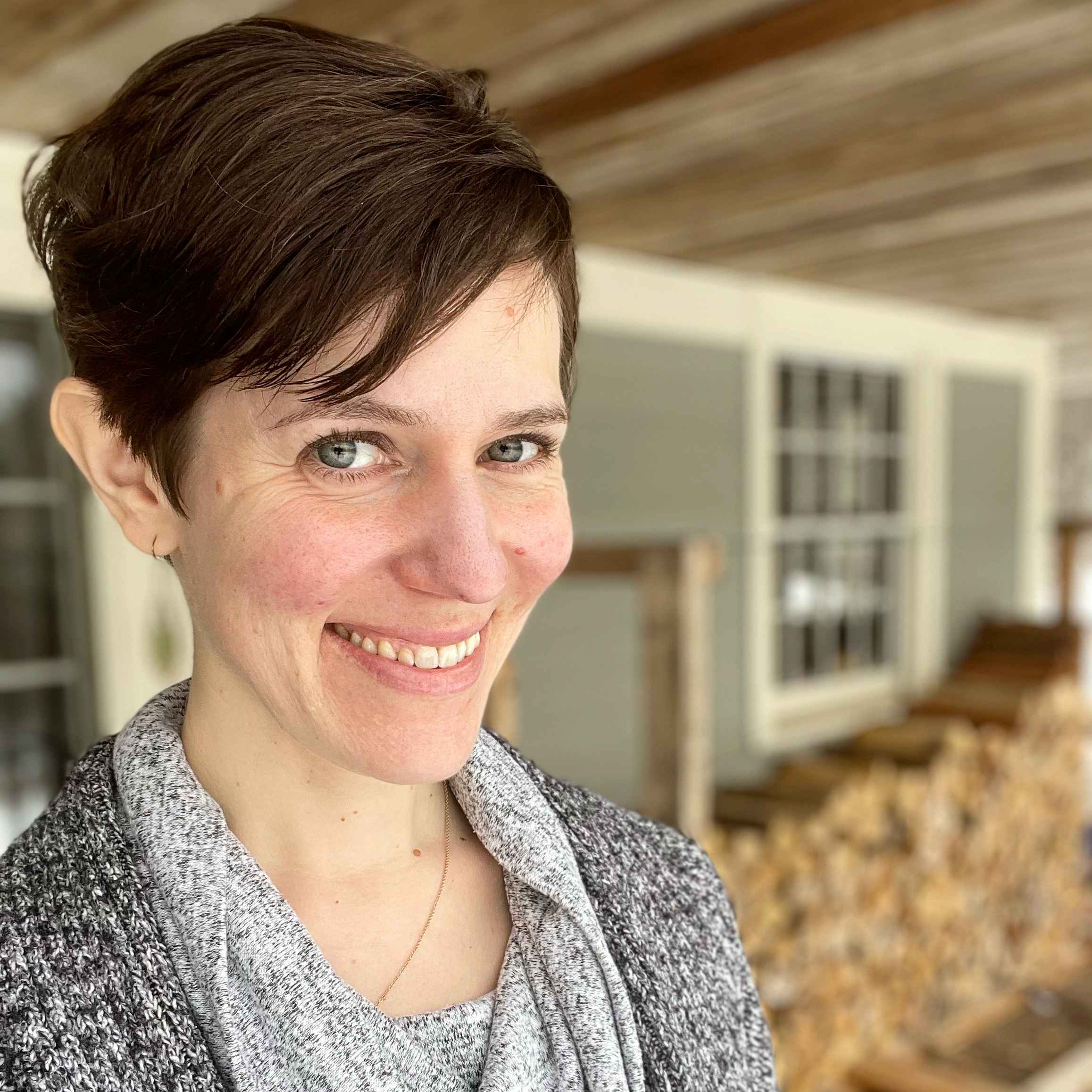
Woohoo! Not going to bury the lede on this one. This is not a mega reveal as I’ve never concealed it (and also it’s today’s title… ), but hey, in case you were wondering: I’ve still got it, baby!!!
I still take my BFF Sertraline (generic Zoloft) every morning. Can’t live without her! I will very likely take Zoloft every morning for the rest of my life. And I will do so with gratitude. Fear not, I’ve discussed this with my doctor and she has assured me this is a safe–and wise–course to follow. She noted that when I enter menopause, my hormones will shift and we may need to change my dosage/medication and monitor my symptoms. But other than that, Zoloft and I are committed life partners.
I know that many folks celebrate titrating off anti-depressants and I commend them for doing what works for them. For me, however, I’m going to continue taking this SSRI until the day I die–or the day I need to change medications/dosages in response to changing hormones.
When the pandemic hit, one of the first things my husband did was order me a stockpile of Zoloft. When Mr. FW retired and we changed our health insurance to the Affordable Care Act, one of the first things we did was ensure we chose a plan that covered my Zoloft. Thanks to my online pharmacy (best invention ever), my Zoloft is on auto-renew and shows up in my mailbox every month. I take it very seriously because I well know the dangers of not. The biggest danger is that my brain will lie to me.
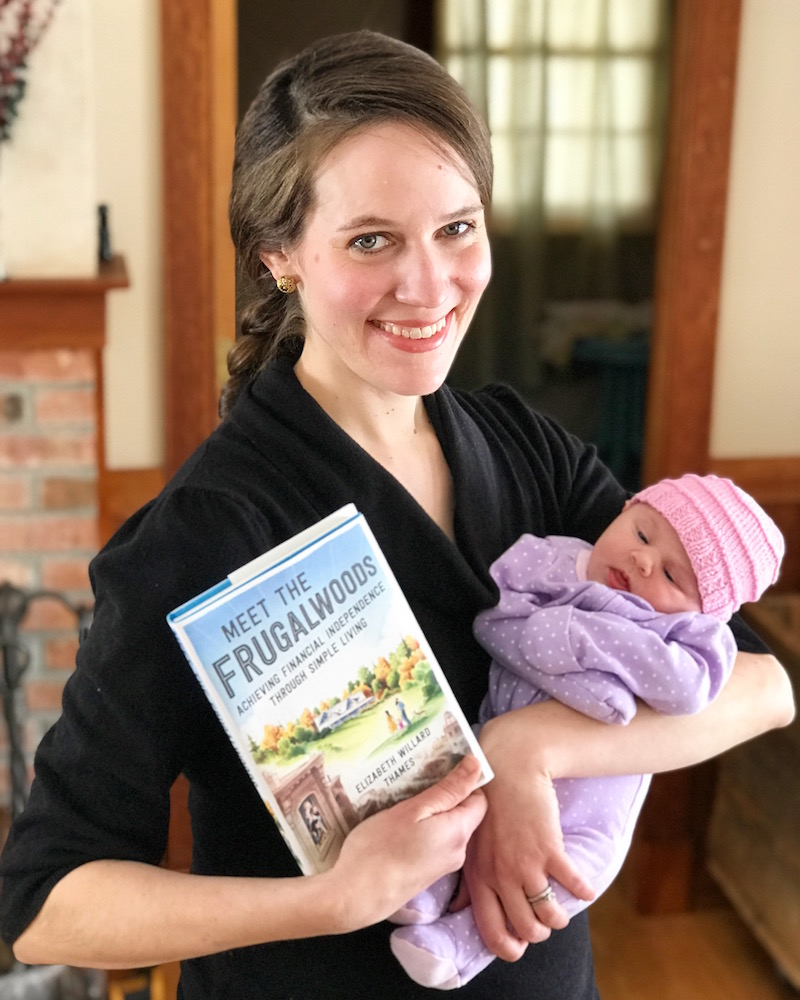
It’s really hard to explain depression and anxiety to someone who hasn’t experienced it because for me, my depression felt like reality.
- I did not perceive that I was “crazy.” Neither did anyone else!
- I was still walking around, doing all my normal stuff.
- I did not “look” depressed.
- But all along, my brain was constantly, persistently lying to me. And not the good kind of lies either.
It’s pretty freaky. If you have a broken arm, you can look at it and say, “whoa, my arm is broken! I’d better go to the hospital!” When you’re depressed or anxious, it’s impossible to have this level of remove or perception because the call is coming FROM INSIDE THE HOUSE. The only reason I stand before you, typing happily away today is because of my husband. HE was my external observer. HE was the one who registered the drastic change in my mood and outlook. HE was the one who said, “whoa, your brain is broken! Better go to the doctor!” He was a lot more tender and politic than that, but that was the gist.
It’s easy for me to joke about it now, five years since my diagnosis, but it was NOT FUNNY at the outset. It was terrifying. It’s actually difficult for me to re-read that 2018 post because I’d honestly forgotten (repressed?) how horrific the experience was for me. At the time, I sincerely felt like my life was over–after all, my brain told me it was.
Trying To Fix It On My Own
In my 2018 write-up, I included an exhausting litany of all the stuff I did to try and cure myself prior to just going to a therapist and getting a diagnosis.
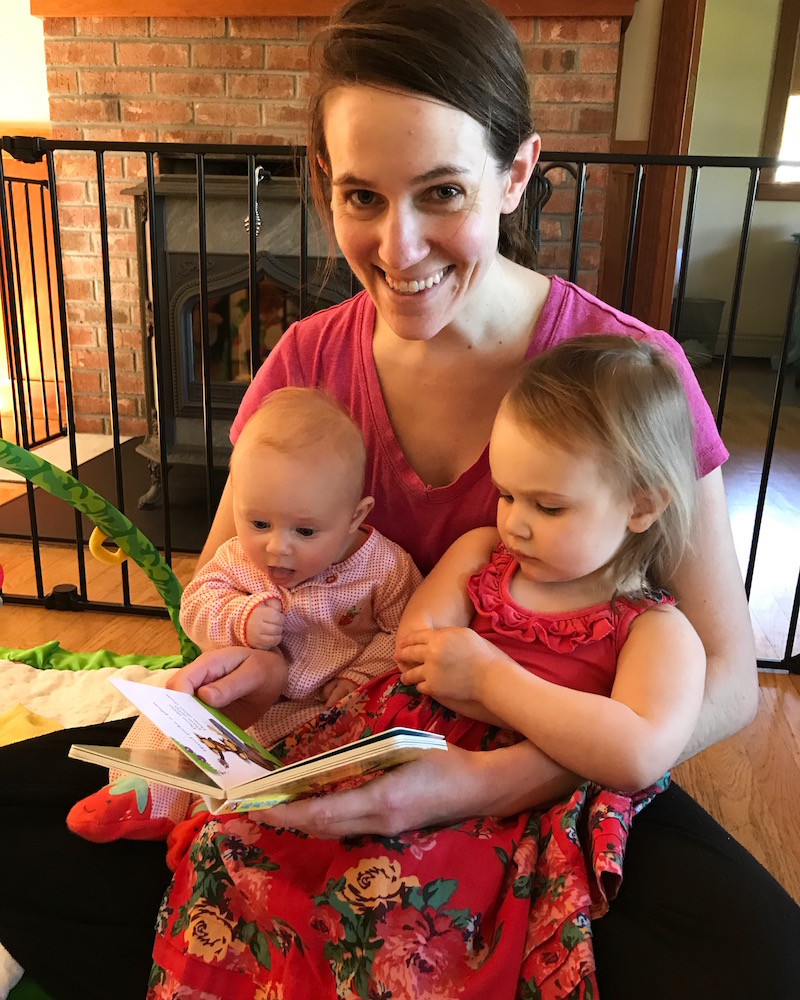
I wrote:
I could NOT see the black spiral I was sliding down. I did NOT recognize it as depression and anxiety. I saw it as a weakness on my part. A failure to live up to my own expectations. After all, I WANTED this second baby. Wanted her DESPERATELY and with every fiber of my being. I wanted this life. In fact, I’d worked doggedly to achieve it, to orchestrate it. Nothing I do is on accident. What right did I have to hate this bespoke existence? I didn’t think I was allowed to be depressed amid such bounty.
I remember telling all of this to my therapist in my first appointment and she was like, “yeah that’s cool, but depression doesn’t care.” In other words, depression can show up–like drunk uncle–in anyone’s life, at any juncture. Depression does not care how good your life is. Having depression is not a moral failing or a weakness of character or a lack of education or a lack of… anything. It just is. It’s also not embarrassing or uncommon. It just is.
Stop Moving the Goal Posts
Likely the first and only sport metaphor to ever appear in Frugalwoods. But it’s an apt one.
In 2018 I wrote:
I repeatedly told myself that this heaviness would evaporate once the baby was older. Once she started sleeping in her own room. When that didn’t change how I felt, I moved the goal post. I decided I’d feel better once she only got up once or twice a night to nurse. When that didn’t deliver relief, I moved the goal post again. It would all magically transform once she slept through the night. I settled in with grim determination. I just had to keep making it through each day. Everything was a slog and I lost the ability to enjoy my children. They grated on my nerves. Every scream, every cry was amplified in this echo chamber of depression.
I now see that this cycle of “moving the goal post” plagued me throughout my teens, twenties and early thirties. Happiness was always one major accomplishment away. Peace and low stress would appear once my next big project was completed.
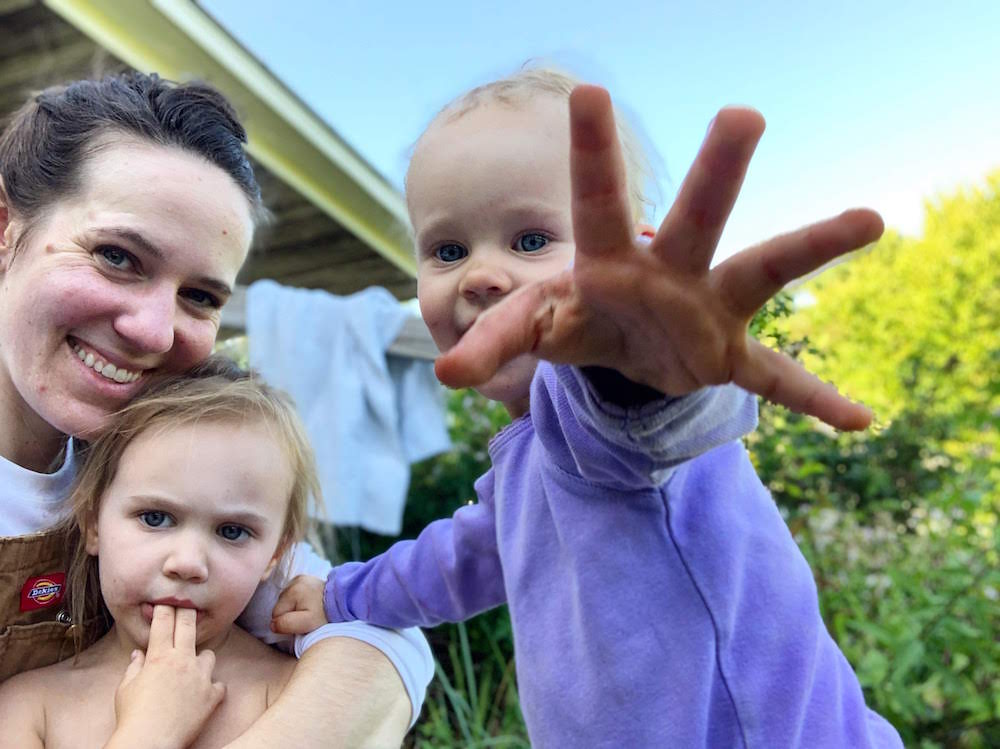
I told myself this lie repeatedly and at each of these junctures (and more!):
- Every final exam season in high school and college
- When applying for college
- While doing college
- Graduating from college
- Getting my first job
- Moving
- Getting married
- Being accepted into graduate school
- Going to graduate school
- Graduating from graduate school
- Getting pregnant for the first time
In all of these instances, I said, “I will be less anxious once I get accepted to college.” Once I was accepted into college, my brain said, “Ok well actually, I will be less anxious once I’ve started my freshman year.” And on it went. Each time I accomplished, achieved or finished one of these seismic events, my anxiety latched onto the next thing. I was forever living in the future, waiting for that moment of low stress, happiness and fulfillment to descend. Well, I have it now and it didn’t arrive magically.
Depression and Anxiety are Not Personality Traits
But I sure thought they were! While I initially had “postpartum” depression, I now have regular old depression and anxiety, which I posit I suffered from since my mid-teens. The birth of my second kid ratcheted my symptoms into high gear, but it’s something I can identify as part of my life for a long time. To be honest, I just thought it was, like, part of my personality. I am not kidding you.
I thought it was my “personality” to be:
-
I can still be successful while being treated for depression and anxiety. Overachieving full-on type A
- Extremely organized and precise
- High stress at all times
- Very successful (but deeply unfulfilled by it)
- Always scanning for problems/stuff to worry about
- Angry and mean when upset
- Impatient
- Bitter
- Controlling of self and others
- Scared of a lot of things: spiders! strangers! car crashes! rotten food! not packing the right clothes for a trip!
- Have a guilt/martyr complex about EVERYTHING. I could not get through a day without feeling guilty and being a martyr to… what? Unknown.
And yes, I am still some of these things, but the edges are softened and I can see the irrationality embedded within some of these traits.
In general, being treated for my depression and anxiety has made me:
- More patient and tolerant
- Less angry:
- I don’t really experience true anger anymore:
- Except the other day when a child (who shall remain unnamed) jump-roped inside the house and knocked over my gorgeous Easter Egg tree display. But even then, I didn’t scream or yell. I was calm in my anger and explained to her that while I was sad and disappointed, I wasn’t mad at her.
- I don’t really experience true anger anymore:
-
Lilacs and globe flowers from our garden! Less fearful and worried:
- I’m not delusional, I know there are myriad dangers in the world; but, I’m a lot more rational in my feelings about those dangers.
- Less stressed (quite low on the stress scale!):
- It’s amazing to me how little stress I feel on a daily basis. These days if stress crops up, it’s as a direct result of something that I can pinpoint and solve.
- In the past, I had all-encompassing stress alllllll the time. Now it’s like, “oh I am stressed because I have too much work on my schedule today. Lemme see what I can prioritize and move around here.”
- MUCH more easy-going:
- Not packing all the right items for a trip does not equal the end of the world.
- Empathetic:
- It’s a lot easier for me to cut people slack and understand that everyone’s carrying a burden I don’t know about.
- In the past I could be a judging judger who judged people. Now? It’s not my place to judge or criticize anyone. Plus, has anyone ever been helped by judgement and criticism? Methinks not.
Some of these changes can probably be attributed to age (just turned 39!) and parenthood. Being a parent REALLY knocks the perfectionism out of you. But those are by no means the most salient factors. The most salient factors are medication, therapy and AWARENESS.
How It Feels For Me to be on an SSRI
I said it best back in 2018:
I started taking the medication. And as soon as it took effect, it was like being pulled out of a river of panic I hadn’t even realized I was drowning in. I could stop thrashing, stop fearing, stop clawing at solutions. I could breath without struggle. I was me and I was going to be all right. It was like flipping a switch. I went from gnawing fear and sadness to feeling, well, completely fine. I wondered if I’d feel weirdly elated or drunk on medication and I can tell you that I don’t… I feel normal. I feel calm.
Yep, not much to add. I just feel fine, normal, not super stressed and generally happy.
Knowing It and Naming It
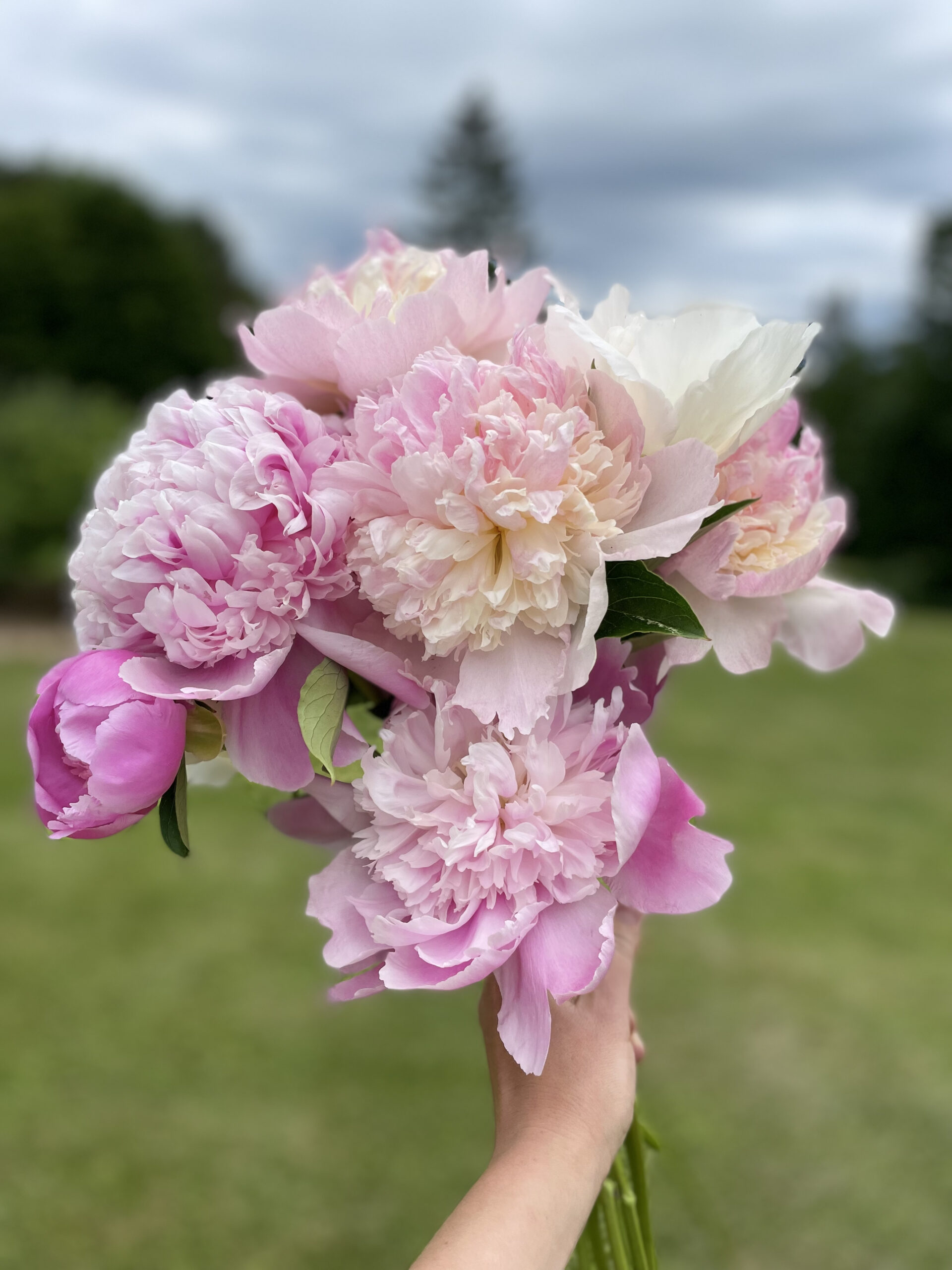
Being able to identify and NAME my depression and anxiety was transformational for me. When I experience dips–which can happen periodically even while successfully medicated–I can NAME them. I even have a little process for it. I say to my husband, “I am feeling the depression and anxiety today and I notice I felt it yesterday too. Can you help me keep an eye on it this week to see if it resolves?”
By inviting him in at the outset, I’m not allowing my depression brain to lie to me. My husband is there to serve as an external observer. Initially, these dips were quite frequent and it meant I needed to increase/change my medication. Now, the dips are pretty rare because I have the correct type and dosage of medication. The dips still happen and I still tell my husband–or more accurately, he just knows–but they tend to resolve within about 48 hours.
I also have a set of resources and practices that help me counteract and prevent the dips:
- Daily exercise:
- I try to hike through our woods, do yoga, or do my PT exercises every day. In April, I exercised 25 out of 30 days.
- I have a very advanced system for tracking this: I print out a free calendar each month on which I record my workouts.
-
Sunrise as seen on a winter morning hike Lots-o-sleep:
- I’m a 9 to 10 hour per night type of gal, which is why 8:30pm finds me tucked in bed. Follow me for more tips on how to party.
- To be honest, this is one of the main reasons why we decided two kids were the perfect number of kids for us. I don’t think either of us would survive the sleeplessness that surrounds the first few years of a baby’s life.
- There are other reasons too, of course, but I have to say that lack of sleep is probably reason #1.
- Fulfilling work:
- I love writing Frugalwoods and working one-on-one with my financial consultation clients. Spreadsheets are my love language.
- I enjoy my volunteer work in our community, which connects me to my neighbors and makes me feel useful.
- Deep friendships:
- I have extremely close friends here in Vermont who I spend time with every single week.
- Not drinking too much alcohol:
- My husband and I don’t drink on weekdays, which I find helps with my sleep and depressive symptoms. I still drink on the weekends, which doesn’t seem to impact my mood. But nightly drinking–a habit we developed during the pandemic–does seem to negatively impact my mood.
- I did an experiment last year where I stopped drinking entirely for a few weeks so that I could track my sleep and mood, which is how I landed on the choice to not drink during the week. Plus, healthier and cheaper!
- Time alone:
- I did not know I was an introvert until we had kids. I must have time alone every day.
- Dedicated time with my husband:
- Our 15-year marriage is the backbone of our life and we have intentional time set aside every week to talk and laugh with each other–without the kids.
- A spiritual practice and faith community:
- I am so thankful for my progressive church, my church community, and the deep sense of peace this brings to my life.
- I also love singing with the church choir–I can feel my soul hum when we harmonize together.
But here’s the thing: all this stuff is great, but it’s the dressing on the salad. In order for it to be a real salad, I must have the greens, the cheese, the onions and the avocado of Zoloft. I’m under no illusion that I can handle it on my own. All of the above are good things to do but they are NOT A REPLACEMENT FOR MEDICATION. I know this because before starting medication and therapy, I tried all of these things in a futile effort to fix myself.
Resources, Encouragement and Hope

Did you know that postpartum depression can affect any type of parent? Fathers can experience Paternal Postnatal Depression. Adoptive parents can suffer from a form of postpartum depression. Kids with two moms, kids with two dads, kids with one mom, kids with one dad–any of these caregivers can experience postpartum depression and all deserve compassionate, immediate care. Additionally, the onset of postpartum depression can occur after your first baby, or your second, or your fifth (source: Postpartum Depression Can Happen to Any Parent, The Atlantic Magazine).
Here’s a list of resources on postpartum depression and mental health in general that can get you started:
- Information on Postpartum Depression from the National Institute Of Mental Health
- Postpartum Support International: call 800-944-4773 (note this is not a crisis hotline)
- National Suicide Prevention Lifeline: call 988
- Crisis Text Line: text HOME to 741741
- American Foundation for Suicide Prevention
- Project Semicolon
- CNQR
- Open Path Collective: information about affordable therapy options. You can also check with your local college or university to see if their graduate program in counseling offers discounted sessions.
- Debtors Anonymous
- TalkSpace: online therapy
Where I’m At Today
I’m at peace with my depression and anxiety. I’m no longer embarrassed by it (obviously) and I hope that sharing my experience might help others. I hate to think of people suffering alone, blaming themselves, feeling guilty and scared of seeking treatment. Even if you just think you might be depressed or anxious, go talk to a professional. There’s nothing to lose, there’s nothing to be ashamed of and here’s the thing: you don’t even have to tell anyone. If it’s something you need or want to keep secret? You can do that.


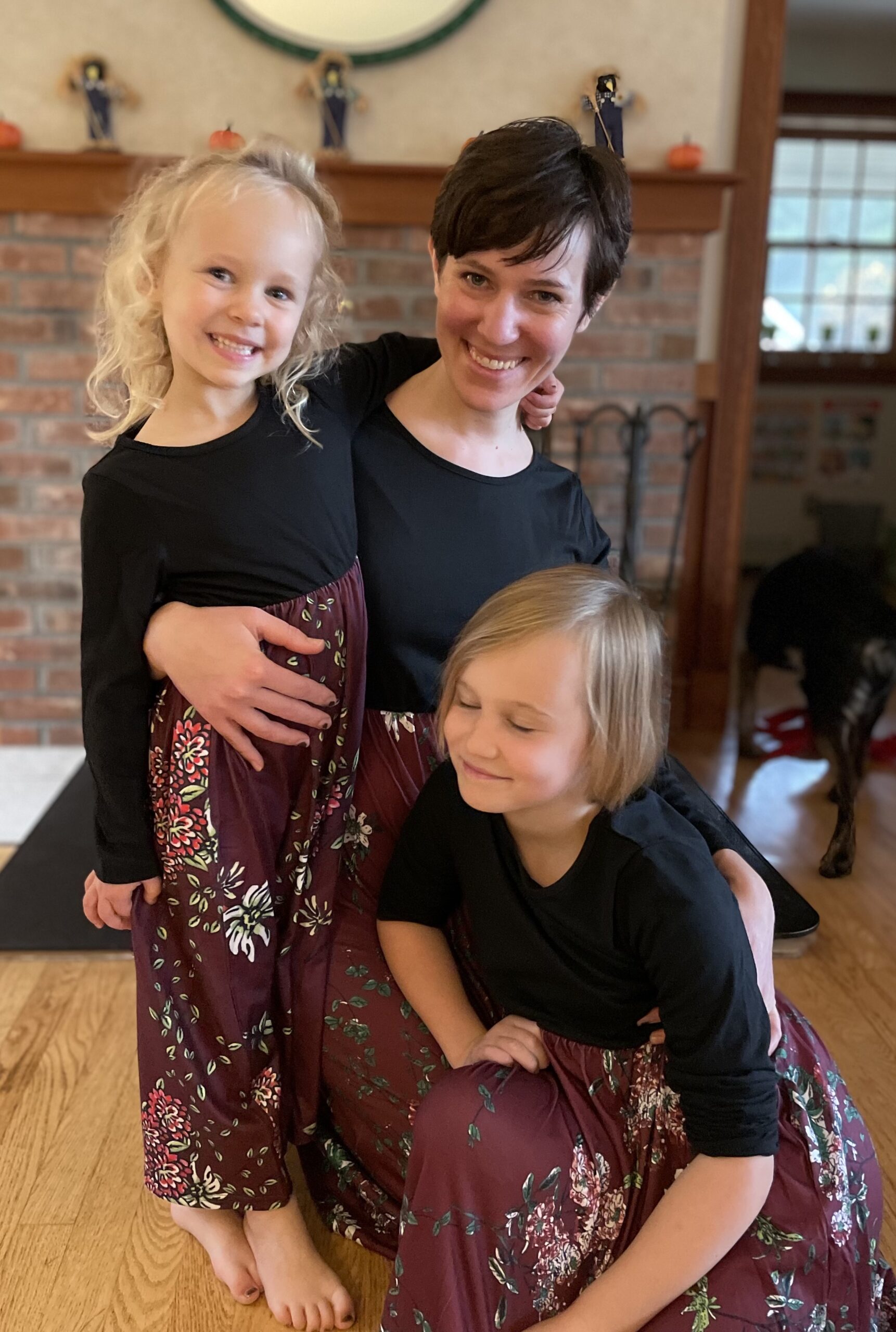


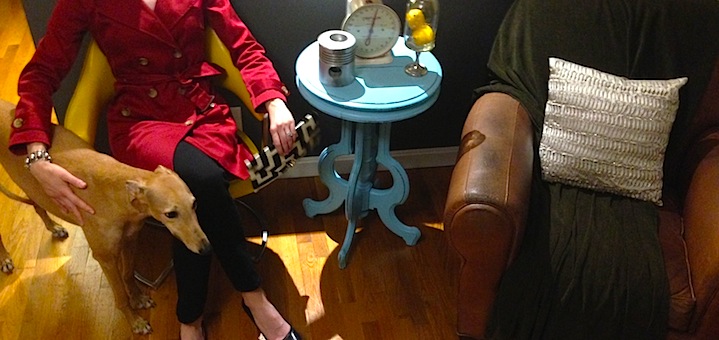
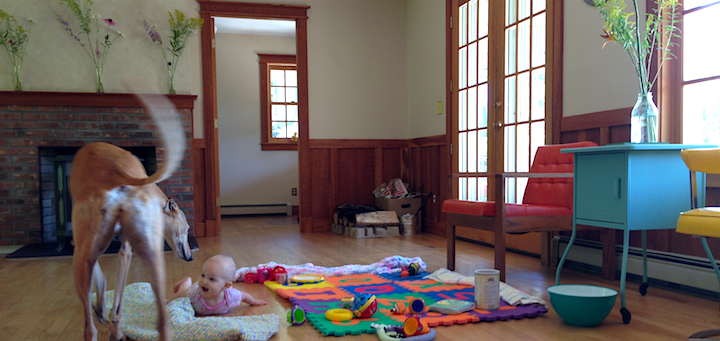
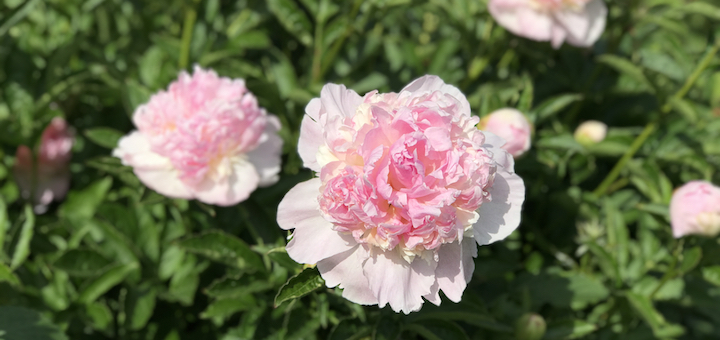
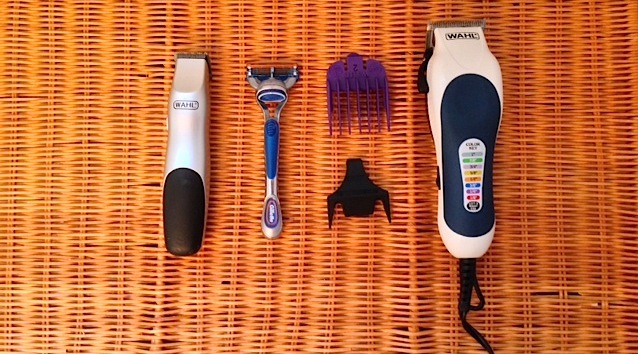
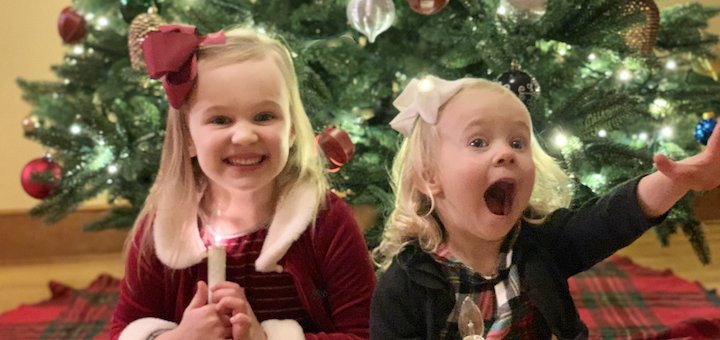

Hi Mrs. Frugalwoods,
I just wanted to thank you for the update. I think it will be incredibly helpful for a lot of people and as a mental health professional I just wanted to say that yours is one of the best accounts I have read of living with the conditions you describe and of how to cope successfully. Real life stories like yours are so useful to others that I just wanted to say how grateful I am that you took the time to post it !
All the very best to you and your family,
Fiona
Here, here! As an Ivy League trained psychologist this is such an important post. Thank you so much for your honesty and openness. Your highlighted recommendations are spot on.
I too have depression and anxiety and am a Type A person. I’ve also been on generic Cymbalta for many years. When I was hospitalized earlier this year I was off the Cymbalta for a while. What you wrote about not getting angry just struck a chord with me: I think it’s true what I’ve read about SSRIs blunting emotions. I do get angry but I also don’t feel joy very often.
Also–how come no pictures of the dog? Do you still have her?
Hi Mrs Frugalwoods – great post. I am so glad you’re being so honest about needing medication. I am on SSRIs too – Citalopram for me – and like you I found them life changing. There is so many misconceptions out there about them – one of the main ones being that people think they will dampen ALL your emotions, so you are “flatlining” all the time. Not so! Before medication my life was one of ruminations of every conversation (did I offend that person?), worrying about things that hadn’t even happened etc. Now, if my roof leaks I’ll worry about it until it’s fixed, which is natural. If I just went “ummm, leaking roof, cool” and walked on that would be problematic!
I had my first child a year and a half ago and got pretty severe PND straight away practically. I had an emergency C Section and on day I asked my midwife “is heart palpitations a side effect of a c section” and she was able to look at my notes, see I had a history of anxiety and we kept an eye on it. I ended up having severe panic attacks and being unable to sleep, which in the few hours you can sleep with a baby isn’t ideal. I knew what medication worked for me, was able to increase my dose and by 6 weeks PP it was under control and I went on to have a really enjoyable maternity leave and really bond with my baby!
I think posts like this will really help people see it’s okay! If I wad diabetic I wouldn’t wean myself off my insulin shots, so why wean myself off my SSRI!?
Spot on. Thank you so, so much for your continued courage in putting this out there. Whether it’s nature, nurture, or both, many women struggle with the thought that we should be able to carry it all, juggle it all, fix it all, do it all right, until we finally collapse under the weight of the load. I am finally learning that it doesn’t have to be that way. A huge relief… There is help.
Long time reader, first comment. Just wanted to thank you for sharing and glad you’re doing well.
Thank you for writing this. So compelling and helpful. And “Follow me for more tips on how to party” made me LOL!
This is such a great article and so needed! I wish I had known about post partum depression when I had my daughter. Not sure if it wasn’t talked about 20 years ago or if I just missed the discussion. Not realizing I had it and not having a medical professional ask the right questions meant several years of true struggle that I wish I had missed. Thank you for sharing your story!
I don’t think that it was talked about much. We had our daughter 28 years ago, back when the internet was just gearing up. My resource was “What to Expect When You Are Expecting “ which is an excellent reference.
I couldn’t sleep and when I did, I had nightmares that things were happening to our daughter. Examples: hands throwing her in the blackberry bushes in our backyard and opening the oven door to find her in a roasting pan (thinking about that still makes me cringe). I thought that I was losing my mind and I was afraid to tell anyone, even my husband because I thought that our daughter would be taken away.
I couldn’t understand what was happening to me and my reference materials were not helpful. We received a big packet of information from the hospital, but there was nothing in it about PPD. “What to Expect “ had some information about “the blues” and then severe depression. What I was experiencing was not the blues. I thought that I couldn’t have severe depression because that wouldn’t happen to me as I was a nurse (apparently I didn’t realize that nurses are human too), this was a planned pregnancy and a very wanted baby, and I didn’t have a history of depression or anxiety (little did I know at that time). I couldn’t find anything about what I was experiencing and it was frightening.
Like Mr. FW, my husband realized that my brain wasn’t working properly even though I didn’t tell him what was going on in it. He insisted that I go see my OBGYN. She was wonderful and talked to me about PPD and anxiety. I started on an antidepressant (and still take one today) and she got me scheduled for an appointment with a wonderful therapist. I will never forget when my therapist told me that my anxiety (fueled with my PP hormones) were causing my horrible nightmares and how relieved I was. Our instructor from our prenatal class also reached out to me and lent me the book “This is Not What I Expected “ which is about PPD and is excellent! She also introduced me to one of her former students who also experienced PPD. It was great to talk to someone who had experienced what I was going through and seeing that she and her child were okay. I did ask our instructor why the hospital didn’t provide information about PPD and she said that their stance was that if they planted the seeds about PPD, new mothers would have it. WHAT??
Through therapy, I realized that I did have a history of depression and anxiety going way back and I just didn’t know that it could be any different. I was a perfectionist as well and it really upturned my apple cart not to feel in control. On my very first visit my therapist told me that my daughter didn’t need a perfect mother, she needed me and that I was good enough. That was my mantra over the years. I, like Mrs. FW, was a goal post mover. “When I complete ____, life will be better.” That is something that I work on daily. Living in today and not wanting for that future time that I think will be better.
Over the years, I have given the book “This is Not What I Expected “ to any woman who was expecting. I would tell them that I hoped that it didn’t happen to them, but that I wanted them to have the information so that if it did they hopefully wouldn’t be as frightened as I was.
Thank you Mrs. FW for sharing your story. I think that talking about depression, anxiety and PPD is very important and helpful. I am glad that women are more open to talking about their experiences.
Oh wow, Rebecca, I got chills reading your story. I had such a similar experience, right down to the nightmares and the fear that someone would take my children away if I sought help. I am going to look up that book now–sounds like the perfect thing to give to all new parents!
Mrs. FW, it is was out of print but you might be able to find a copy.
I just want to say to of think the standard of care has changed a lot around this. With my first in 2018 and my second in 2022, I was given depression and anxiety screenings at prenatal appointments, my post partum appointment and at well-baby visits. When post partum anxiety became an issue with my second, my OB/GYN had a video visit with me within a day and got me meds (primary care, sadly, was a total dead end). I know that is not everyone’s experience, but I do think things have changed and systems are better for moms.
Emily, I am so glad! The standard of care really needed to be changed from “if you don’t tell them about it, they might not experience it” to a more proactive approach.
This book (this is not what I was expecting) helped me a lot not feeling so alone, and also ”Down came the rain” by Brooke Shields.
Thank you for this post. I recognise so much of what you describe. Sertralin has been life-changing for me as well, though I am only on it for a couple of months now. I am wondering what your thought process was on keeping on taking it for the rest of your life. I am nowhere near ready to getting off of it, but I am just wondering what made you make this decision.
Mental health awareness is so important. The median age of onset for anxiety is actually 6 years of age! Yes, 6, six, VI. I have been diagnosed and live with anxiety, moderate depression, PTSD, and OCD. I take 4 medications every day and I will probably be on a cocktail of some sort for my whole life. I need this medication if I want to stay alive. You wouldn’t tell someone with diabetes to stop using their medication as a crutch, or that if they are doing so well on their treatment, that they should work on “getting off the meds”. Nope, just as someone with diabetes needs their insulin, I need my meds.
I am also a high achiever. When I was 19 and on my third hospitalization for mental health, I decided that this high achieving lifestyle was not worth the price I was paying. I don’t need to impress anyone with my job, income, or degrees, not even myself. What I need to focus on is my happiness. I am and have always been in a very fortunate socioeconomic situation and surrounded by a wonderful support system. I have a lot of protective factors, which is probably why I’m still alive today. Just like a fairytale life doesn’t prevent or cure diabetes, it does not prevent mental illness.
I have a wonderful spouse and we look out for each other. When I’m struggling with my mental health, I tell him that my brain is being un-helpful. When I feel better, I let him know that as well. That way he can help me keep a check on things. He also has a copy of my “action plan” so he knows what to do if symptoms XY and Z show up and I’m so deep in the fog, I can’t see my way out. It has levels of response depending on the severity of the symptoms. It is better to have a crisis plan than to wait until there is a crisis to try and decide what to do. I encourage everyone to make their own crisis plan at a time when they are doing reasonably well.
I have also encouraged my parents to make a plan for themselves as they age regarding what staying at home looks like and at what it would look like if they can’t do it all by themselves all the time, what services they would like to outsource (housekeeping, lawn maintenance, cooking and etc.), or if they need 24/7 care with someone awake at all times. I would much rather help them follow their own plan than try to make decisions on their behalf when they may or may not have the ability to be objective due to an illness or disability.
Happy mental health awareness month everyone!
Sorry, didn’t mean to write a book. Also, while I did have a hospitalization at 19, it was actually my second, my third on was when I was 21. Sorry for the error, I wanted to clear that up and couldn’t find an edit button.
Stefanie, thanks so much for this post, especially the first part about the median age of the onset of anxiety being 6. I have struggled with anxiety and depression culminating in severe panic attacks at age 28, about one year after the birth of my third child. I knew my anxiety set in when I was around 7. I always thought it was my parents’ divorce around the same time that started me on my way, but I can see now that it was probably going to happen anyway. I am on generic antidepressant, Paroxetine which has driven away the panic attacks, depression and anxiety for the most part. I still have icky days when I’m tired or upset about something situational but I’m so very much better. Walking a lot helps too. Best to you and again thank you for bringing up the subject of when anxiety starts. Us poor kids! Wish we could outgrow it but meds and therapy sure help.
I’m the same age as you and yup yup yup. My situation was a bit different — intermittent major depression and I didn’t have postpartum with my one kid because thankfully I was safely medicated before, during, and after my pregnancy — but it’s AMAZING what the right meds do. Enough sleep is the #2 and then far behind are the basics like good food, good job that I enjoy, good relationships, exercise, and spirituality (Zen Buddhism for me). Mental health is so important and now it’s relatively easier than ever to get the right fix. I love how you did a breakdown of what you thought your personality was vs. what it actually is. I really identified with my depression personality, which was similar to yours. I’m more laid back and a lot of my interpersonal issues disappeared!
Thank you so much for your honesty and articulacy! You do such a good job of describing the things that have gone on inside my head – and the solutions. I love my sertraline! I had PTSD and then anxiety, then depression after my younger daughter was born too. She is 8 now, but it is only a year since I started taking an SSRI. During the first 7 years of her life I alternately denied there was a problem, berated myself for having a problem, admitted I needed help and had therapy, but I totally resisted taking medication. I’m not really sure why, now. Except that maybe anxiety and depression were lying to me and telling me that taking them would be an indulgence I didn’t deserve, because I was so lucky in my life and should just woman up and stop whingeing. It was also my husband who finally persuaded me that something needed to change, and I will always be grateful to him and to my lovely GP who prescribed medication and convinced me that taking it was the right thing to do. I’m so glad you are continuing to experience much improved mental health. x
Really really glad to read this update, thank you so much for sharing!
This was a brave, incredibly helpful post and I admire your vulnerability and transparency so much. Over the years, I have found the Enneagram to be revelatory in understanding myself and others. In addition to all the ways you are caring for yourself while living alongside and in a weighty companionship with depression and anxiety, the Enneagram may add another layer of insight? Hugs and every good wish, Liz. You are a beacon and a guide.
Thank you for sharing your story. I’ve been going to therapy for about a year and a half (weening off now) and have a bottle of sertraline in my cupboard, untouched, for several months. I just can’t bring myself to take them. My diagnosis is anxiety and mild depression. The reason I haven’t tried the meds is it doesn’t affect me every day. I can even go a week or two and be totally fine. Then it descends and might stay for a day or a week. Every time it rears its head, I think I should try meds. Then it goes away, and I’m like, no I’m fine. This week is a rough one. After a failed battle with unexplained secondary infertility, Mother’s Day is always a hard day with a lot of mixed emotions. Joy for my wonderful son, and grief for the ones who aren’t here. Anyway, all that to say, it’s helpful to hear others share their story, as I’m still figuring mine out.
Rose, I do know that feeling. When things feel ok it felt for me like things were never bad, but when they are bad it seems like they could never be good. My psychiatrist said this is very common in people with depression. I hope you find the best way that works for you to feel well all the time.
I agree, Kate, I too experienced those swings and dips prior to medication (and then while getting my dosage right).
same
Anxiety and unexplained secondary infertility here too.
I’ve been charting my cycles for a long time for fertility reasons, including my moods. I’ve found out that during certain times in my cycle I tend to be more anxious / negative / angry / happy / relaxed / etc.
This helps me notice whether certain feelings are in my normal pattern and resolve themselves or something I need to actively take care of.
Thank you for sharing! I found this to be really helpful. I recently started taking a small dose of generic Prozac, to see if it would alleviate my symptoms of PMDD and it started helping immediately. In addition to helping those symptoms, I notice that I feel more calm and easy-going, and less prone to spiraling into major anxiety over, as you mentioned, something like not packing all the right things for a trip 🙂
Maybe in a hundred or so years we (or the zombies, aliens or robots) can look back and say, ‘huh’. What was the deal with ostracizing mental health? Zoloft changed my life for the better but 20-ish years ago I had to lie on a government security clearance application regarding mental health. If I’d said, yeah, I go to therapy and I take Zoloft I doubt the application would have been approved. Just the wording of the question was an accusatory, game over, warning, kind of like, ‘have you ever committed a felony?’ If I had been diabetic and said I took insulin, no issue and aren’t you glad there are meds for that?! But not for mental health. Fast forward to today, I am honest with myself and others. There isn’t TMI when it comes to mental health.
You are a very brave person to share your struggles. I was unprepared for postpartum depression, as any previous depressive symptoms were situational & transitory. I was lucky in that taking medication ~ 9 months resolved my issues completely. Even menopause did not cause any problems. So 22 years later, I feel very fortunate to be symptom free. The positive take-way is that after experiencing those terrifying feelings, I now have much more insight & empathy for those with this type of suffering. Thank you for making the often invisible, visible; for your message that there is help available; and that a great life can be had in spite of mental health challenges.
Thank you for this! I have a super similar story–lifelong anxiety and depression that I just powered through (got a PhD! and a great job! and cool century house that needed a million renovations!) until I had a baby, and then finally got diagnosed and treated. I love my little blue Viibryd I take every morning, especially because feeling that sense of calm helped me realize that I also have ADHD (which my anxiety and depression were both masking and compensating for), and having all three of those things well managed has been a total game changer.
I wonder, since this is Frugalwoods after all, if there might be some other posts in there on the intersection of mental health and money? Obviously being able to access and afford medication is a big one, but also how spending habits change (or don’t, but maybe get harder or easier to control?) in relationship to mental health, paying for therapy, the mental health tax (i.e. the things many folks end up spending more on, like addition child care or help around the house or convenience foods, when they need additional support because of their mental health), etc.
Oh yeah, the costs of being disabled, physical and mental, can be huge and unseen. I don’t mean direct care costs you have in the US but over the counter meds, more expensive daytime flights because you can’t miss sleep, the expensive airline because you can’t handle the Hunger Games fight for seats, taxis because you can’t walk that far, vitamins, the expensive store because the local store raises your anxiety, the anxiety shopping, dry cleaning because you can’t iron… I spend a third of my salary every month on things related to my conditions. I’m lucky that I can, but also fed up that I have to.
And thank you for the post Liz, we need to keep normalising medication for mental health.
I’m team Lexapro over here! If I go even one day without it I can tell the difference. It really has been life-changing for me for anxiety, depression, ADHD, and OCD. This medication gave me me back. I’m a better person for myself, for my family, for my children, for the world (most days). It’s worth it.
I took Lexapro for three and a half years. It helped a lot. I chose to quit and try managing my anxiety without it, but that is not feasible for everyone. Do whatever works for you. I am not totally against taking it again someday (I now take another medication for another issue, so I just want to deal with that one, if possible).
I LOVE your success story! Congratulations!
988
Suicide and Crisis Lifeline
Hours: Available 24 hours
Thank you, bob! I will add that to the list of resources above.
Thank you, Liz. This is a wonderful message. I wished they had been open about mental health 40+ years ago. I suffered, like many, for years. In reflection, I realized I had PPD with my 2nd child. I just couldn’t cope with all the expectations as set for myself. I did not have any support as it was not talked about. It was hidden. I found out the hard way that medications would be needed for the rest of my life. Kudos to you and thank you, again for this article.
I remember this post so well (and I have a bad memory) bc not to be overly dramatic, I was like omg yes! It me! Never has it been more clearly explained, it should be required reading…for everyone! I have been depressed/anxious my whole life. Tried the litany of SSRI’s and boosters about 7 yrs ago and sat back and waited for them to work. Had about 4 days, seriously I can clock it, of “so this is what it’s like to feel normal omg how wonderful! Eventually stopped taking anything bc I didn’t think it was working and felt so much pressure from people that didn’t think I needed anything bc we function externally as we do. Last year a new doctor said well, you never tried Prozac let’s just see. Two weeks in I had the epiphany that I still needed to do the things for myself, exercise, etc to help the pill help me! It’s been a year and I too am never going back! The dips do happen (great description) and immediately I hear well I thought you were on meds blah blah blah, ok people it’s not a magic pill! You still need to put in the work! And as you say, again so perfectly, it’s usually something external you can get a hold of! This is very long winded, there’s a lot of other stuff people say oh don’t take that you’ll have a flat affect, your sex life will be ruined, you’ll be robotic. Guess what all it did was allow me to be normal! I’m still an introvert but I’m not as challenged by everything and everyone! I will add that I am a sober person and have been for 18 years. A whole nother criticism of are you really sober if you have to rely on a daily pill component exists but that’s just another voice that needs to be kept in check! I love reading about your life but nothing compares to what you’ve done for people with this post and the ppd one. Thanks so much!
Thank you for sharing this, Sue! I am SO SO glad that you’ve found what works for you! You said it perfectly: “Guess what all it did was allow me to be normal!” Truth!!
There is no conversation about if you are sober if you take medication each day. Would that apply if you were taking something for hypertension or asthma or epilepsy? I hope it would 100000000% not. The medication you take, presumably prescribed and monitored by a trusted doctor is unrelated to your sobriety! You have every single reason to be incredibly proud of overcoming what must have been really tough challenges and things that felt insurmountable. Understanding and dealing with any underlying medical issues – psychiatric or physical – is part of that. Really confronting the realities of one’s own situation is a brave thing to do.
Ignore that voice! That voice is a lying liar who lies!
Thank you so much! I’ve been on Citalopram for years for anxiety and depression. I say it helps my shoulders go down a few notches! Prior to that, I was a very unhappy, angry, anxious ball of mess and I used alcohol to self-medicate, which is a very dangerous trap! I started medication a year after getting sober (I first moved the goalposts by saying ‘Once I get sober I’ll feel better,’ but I didn’t feel better enough). I once went off my medication because I was worried that I was “weak” for taking it for the rest of my life. HAH! My symptoms were fine for a few weeks and then quickly came back, but I didn’t notice. Thank God for a good friend who helped me see what was going on. I wish you all the best and I applaud your courage for being public about your journey.
We are so indoctrinated to seeing ourselves as weak for needing help! I so relate to those feelings. My hope for this upcoming generation is to destigmatize (sp) the judgement around medication and alleviate the roadblocks we throw up for ourselves!
Liz: Thank you for this wonderful, open-hearted post. I am loving your “update series,” finding it to be so interesting, relatable, and comforting. I especially appreciate you taking such care with how you describe your mental health journey in a way that encourages others to explore what is right for them.
I am also so happy to hear you have a helpful toolbox, which is something we can all benefit from cultivating. This is a great framing for finding healthy habits and practices that help us to feel our best.
Anxiety and Depression sufferer here too. I just realized (and never heard about before) that I am also ‘moving the goal posts’. Constantly driven by trying to achieve the next big ‘dopamine rush’ and then when it gets here and doesn’t solve the issues in my brain, I strive for the next thing. I really am going to have to reflect on that. Thank you!
I’m right there with you, Laura. I need to bolt these goalposts into some concrete or something…
I can really relate to a lot of what you wrote here. The dips, the constant anxiety, the feeling of “I have a good life, I should feel happy and peaceful,” and especially the feeling of “I’m eating well and exercising and taking vitamins, so I should be good.” I started Zoloft last year. It helped, though I did feel a bit flat. But as soon as I started feeling better, I got scared and weaned off. I guess just fear of what the meds might do long term. Are they good for us? What if I just try harder on the cognitive aspect in therapy. Anyone else get past that?
I did because I realized that 1) I didn’t have time to feel like that and 2) my kids and my husband deserved to have the best of me. I couldn’t work harder at CBT or will it away. It’s chemical and it’s fixable.
I think everyone has to decide for themselves if they want to stay on a drug indefinitely. For many people, the benefits really outweigh the risks. It sounds like a lot of people here have had amazing outcomes on these drugs. But there are others who either don’t want to be on the drugs forever, or in my case, people who have a severe negative reaction to them (Zooloft was a terrifying experience for me). I think its great if the drugs work for you! You’re very lucky. But if you can’t use them, for whatever reason, there are many other things you can try, so don’t lose hope. What is often lacking from conversations about depression and anxiety is that trauma is the underlying situation and there are many new treatments for different kinds of trauma and we know so much more about the nervous system and how to regulate it now. Somatic Experiencing or similar therapies that work with the body and stored trauma combined with talk therapy and making life changes (increasing my internal and external resources) has helped me manage depression after decades of battling it. Unfortunately, therapy can be very expensive and it can be hard to find the best therapy for your situation. I hope that changes. Again, its great if drugs work for you, but I don’t want anyone to think they are out of luck if the drugs don’t work.
I appreciate your honesty and transparency. I experienced postpartum depression after my first child was born. 20 yrs. ago it was still shameful to admit that a woman had pp especially among older women (family) which I find so sad. Boy, have we come a long way. I too have anxiety and see a doctor for this. Again, thank you for your boldness and I hope with all my heart that if your post can touch one woman and help her not live with the shame of having postpartum, then job well done.
What a fabulous post this is. I too suffered from postpartum depression, but it was delayed due to heavily nursing child #2 until nearly age 3 (I tried to wean her multiple times but she was stubborn!). 5 days after weaning, my brain fell off a cliff. I was so depressed that I couldn’t get out of bed. It was clearly chemical in nature as it started abruptly, but my OBGYN said that it was because I was sad that I wasn’t having any more kids (??? Seriously?!). My MALE family doctor is the one who put me on the Zoloft. He said that babies should come with warning labels and that duh of course the hormones (or abrupt lack thereof) caused this. Once the Zoloft kicked in, I felt normal. I realized that I’d always had underlying anxiety. It clearly runs in my family. My mom was skeptical of my going on meds, but she was wrong. I’ve tried to go off Zoloft twice, and now I can proudly say “never again.” I’m on it for life. I don’t have time to feel like that, and medicine can help me to feel like myself. There is zero shame in that!! Good for you for writing about this. So many people need to hear it. We are so lucky to live in the age of modern medicine where we have something to help us.
I’m so glad to hear you’re doing so well! And yes, we are indeed lucky!
Since you touched on sleep and so many people are commenting on how a diagnose changed their life. I figured I would throw in a random one for you all. If your spose is on your for snoring, talk to a doctor about Sleep Apnea. My husband for years needled me, but due to the sleep study I didn’t. I’m relatively young and fit, I just snore. I’m tired because I’m and mom and work is stressful. Nope NOPE NOPE, I had it and now I sleep with a machine every night (which trust me is way easier then times in the past). It changed my life somewhere around day 7, I woke up and was like “is this how the rest of the world feels everyday???? I’m not in a perpetual state of exhaustion anymore.
Same, same, same. I always snored, since childhood. My husband finally pushed me to get checked. Sure enough, sleep apnea, due to structural things in my throat and neck. Got the machine, and I sleep better. No shame. This isn’t exactly chemical but it’s the same idea — something that needs adjusted in my body. Bless all of you who are working to raise awareness of these situations in our lives that can be made better, and make us better wives, Moms, and members of community.
Thank you for calling this out!!! I too did a sleep study years ago thinking maybe that was the issue for me. In my case, nope, it was depression & anxiety all along. I’m so glad you did the study and are sleeping better now!!
Wonderful update. I’m 67 and say everyday “Jesus loves me this I know, for he gave me Lexapro.”😂. I’m kidding (not kidding) of course, but I’m sure you understand the relief of no longer living with severe depression and anxiety. I can easily divide my life into two categories..BM/AM. Before meds/after meds. I suffered with anxiety literally as long as I can remember – as a small
Child. I thought feeling the way I did was normal. So sad.
YES! Jesus does love us! And he DID give us Lexapro!!! Thank you for making me laugh. And I’m with you on the BM/AM–I have that exact same perception of my life. My husband does too and he is as grateful for my Zoloft as I am!!
”’ I can easily divide my life into two categories..BM/AM. Before meds/after meds. I thought feeling the way I did was normal. So sad.”’
Yes, yes, yes!!
Hi – I had postpartum depression for 8 years before I gave up on my stubborn “no pills” mentality. To get there, I read and reread your 2018 post countless times. Thanks for putting it out there.
Best decision of my life. Once the meds took effect, I felt like myself for the first time in the whole of that 8 years. I cried with relief for weeks.
Thank you. : )
Oh Melissa! My heart goes out to you. I am so glad that you are feeling so good now!
I’m a man, and I feel like this is evenmore stigmatized for us. I started Welbutrin for the first time a couple months ago. I wish I had started it sooner. It has been a dramatic improvement. I still have bad days, but fewer and not as bad. I will be on Welbutrin for the rest of my life.
I was 60 before I finally reached the point of being able to bluntly say,, “We are chemical beings. God made us that way.” I had to work through some church-related ministries that taught that mental issues were a spiritual problem. It took a long time to realize the truth. Chemicals change and shift, and sometimes we need external substances to balance them. We call those things medications. They are not wrong, and there should be no shame, but rather a reaching out with help to those whose hormones or chemicals in any form are out of balance. That’s love, and that’s compassion. Liz, so glad your husband could realize your need and help with your balancing. I have seen major positive results in two of my close family members who got help and now have things balanced. I am currently battling a spinal/nerve thing and am taking narcotics to work through the pain until the problem can be resolved. Does that make me a bad person? Of course not! Bravo to all of you who can speak out about your struggles and the things that help, and bless you, Liz, for using your forum to spread awareness. We are better because we are working together to get past this “stigma” and bring relief to friends everywhere.
I am glad that the Zoloft is working for you. I took Lexapro for three and a half years. It helped me a lot. I quit because I wanted to trying managing anxiety without a medication again, but I understand why that is not feasible for everyone.
Here in the Southern USA, some people still think that depression and anxiety disorders are silly nonsense: “Everyone gets anxious”. They think you should pray more, go to church, and read the Bible more. It’s a hurtful, intolerant attitude. Anyone can feel anxious sometimes, but not everyone has an actual disorder that impacts their everyday life.
Spot on! I did not realize how my anxiety and depression were ruling my life, till they weren’t. I still have my ups and downs, but meds and therapy have been lifesavers.
Thanks for this update, Liz. And thanks for being so open! There is still such a stigma in talking about mental health, even though most people would have no problem talking about their physical health. I have tried to be open about my anxiety too, and taking medication for it certainly helps with the vulnerability. I too take Zoloft everyday and feel no need to stop. Started it after my first kid was born, and even took it while pregnant and bfeeding kid 2 (who is totally fine and very calm, haha). The difference between my first postpartum and second postpartum experiences were night and day. I know you have helped so many other women with your posts, so keep it up!
I remember when I first started Lexapro being so overwhelmed with happiness and relief and calm that I thought that I must be taking too much and promptly cut the dose in half because really ‘one shouldn’t feel so happy’.Then I was fearful in case the relief didn’t last,but it has.I’m 80 now and it has changed my life and I’m enormously grateful for such life changing medication.
“I’m a 9 to 10 hour per night type of gal, which is why 8:30pm finds me tucked in bed. Follow me for more tips on how to party.”
I genuinely loled at this.
Thank you for the update and thank you for sharing. I recall when you first made the post about this and I was blown away by your openness. It really helped me in my own parenting journey. Xoxo
Mrs Frugalwoods thanks for writing this. I knew I had an episode of depression in the past, but my anxiety really flared when my daughter was born. In my 40’s I have found so much of what you have mentioned to be necessary; regular exercise, 8+ hours of sleep a night, and very limited alcohol. Honestly sometimes it sucks, I want to drink wine every night and be able to stay up watching TV, but the cost is too high. I did the Mindfulness Based Stress Reduction class (MBSR) at UMass Medical school. You can find join online or find in live in other locations. It was also a life changer for me, and when I started paying attention to my thoughts I realized the days when I had a drink the night before my emotions were all over the place.
What a fantastic article , all the things you mentioned so true , if we had broken our leg or arm people would help and understand but because it’s hidden we suffer in silence. It’s so refreshing to hear real words and know I not the only one who suffers depression and anxiety. Thank you so much . Kind regards simone , England
I feel like I could’ve written like 95% of this and I agree with all your conclusions. They can pry lexapro from my cold, dead hands!
To quote one of the greatest shows ever: antidepressants are so not a big deal! https://www.youtube.com/watch?v=OG6HZMMDEYA
Seriously, though, thank you for this post. I’m from a culture where there is still huge stigma around depression, and being “on the go” all the time (i.e. generalized anxiety disorder) looks indistinguishable from being a “model minority” (uggggggghhhhh). I’m so glad to see people being more open about mental health than we were even 10 years ago.
Thank you thank you thank you! Finally, someone else out there who unashamedly proclaims that medication is the answer (for them). Depression and anxiety don’t care what your life circumstances are or what you do about them. You can exercise and eat well and a million other ‘healthy’ things…and still have depression and anxiety. Medication is ok. And you don’t have to try everg non-medication fix before trying meds – you can first try the meds and that’s ok.
Thank you, thank you.
Are we twin?? Reading you is like reading my personal journal. I had PPD in 2010, I had to be hospitalized, and back then Effexor and a low dose anti-psychotic SAVED my life. Yes, I was in a good place in my life (wanted this baby, had a husband, house, support, etc) but it didn`t matter : I felt utterly broken after the birth of my first daughter. I eventually stopped the meds and were ok for many years (or so I thought – always carrying low grade depression that I though was MY normal, and anxiety). About 3 years ago I went to the dark place once more and, like you said, was not able to see this. I was crying every day, told my husband it would not matter if I disappeared, etc… But, hey, I was FINE! Hubby urged me to consult my doctor and I got put on Wellbutrin. This medication not only saved my life one more, but changed it as well. I tried lots of different anti-depressant throughout the years and this one is like gold for me. I will never ever stop it if I can avoid it. The low-grade depression lifted, the anxiety went down, and my ADHD symptoms (that I did not know I had) got much better, namely the aggressivity and impulse control. I tried everything else before, but turns out I needed those meds. I am not ashamed one bit.
Thank you for this incredibly honest post. I felt extremely ashamed that I had Post Natal Depression when my son, now 8, was born. It took until my second was born (and he was 18 months) to speak up. It is sold to us as women that having a baby is such. sacred time (and it is), but with it comes a huge change in hormones and sleep deprivation and this can be extra difficult for those pre-disposed to anxiety/depression. I am now seeing a regular psychologist and am on medication for life. Thank you for sharing, it has a huge positive effect so thank you.
So thankful for your original post! Also the “Aha” book that helped me understand what I was experiencing (so wish I had it sooner after my baby was born) was “Ordinary Insanity: Fear and the Silent Crisis of Motherhood in America” – it normalized and de-shamed so much, especially about the more neurotic anxious (“should I be hospitalized”!?) feelings
Girl, we are the same person, I swear! I am also in a long term relationship with Zoloft after having PPD with my 2nd daughter.
Thank you for putting words to how I feel about my alone time….I NEED my time alone. You said it so well: “I didn’t know I was an introvert until I had kids”.
Thank you so much for being so open and sharing your journey with depression. I am on antidepressants too, not from PPD (sadly I haven’t been able to have kids) but from just having a tough time keeping my head above water. They have saved me and I’m a much better person from taking them. I do wonder if I’ll ever go off them, but for now they are what I need and have chosen to take. The key thing there for me is choice, we all have choices in life and knowing you have them is liberating which helped me to make the choice to take the anti-depressants.
I can also appreciate the no alcohol thing, not drinking it really helps me with my mood and sleep. I also have endometriosis which causes me a lot of grief, and diet has been a big factor in helping with that.
I have also become a more relaxed person and I am less stressed about the things that don’t matter. Being constantly worried or stressed is ne helpful at all!
I also wanted to share a great podcast I’ve been listening to called What Matters Most. I’m from New Zealand and the podcast is hosted by two kiwis who are friends, one who’s an actress and one who is a clinical psychologist and they talk about all sorts of stuff related to therapy, but in a way that is easy to understand and digest and they have practical tools to help people. I’d highly recommend it! Here’s the link on Spotify, but it’s on other platforms too https://open.spotify.com/show/4YlNxP3qN4NmugpOIrO4Bi
Thanks again Mrs FW and I wish you all the best for your journey!
Kate from New Zealand